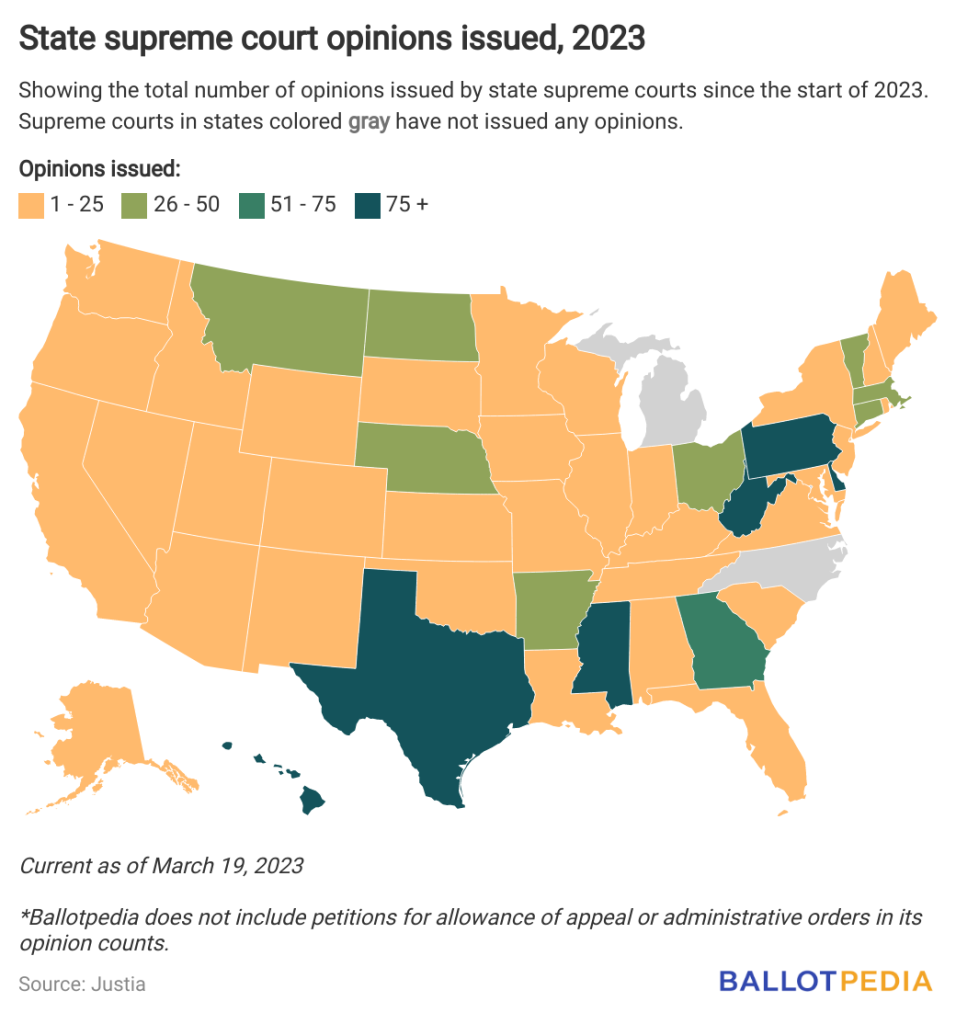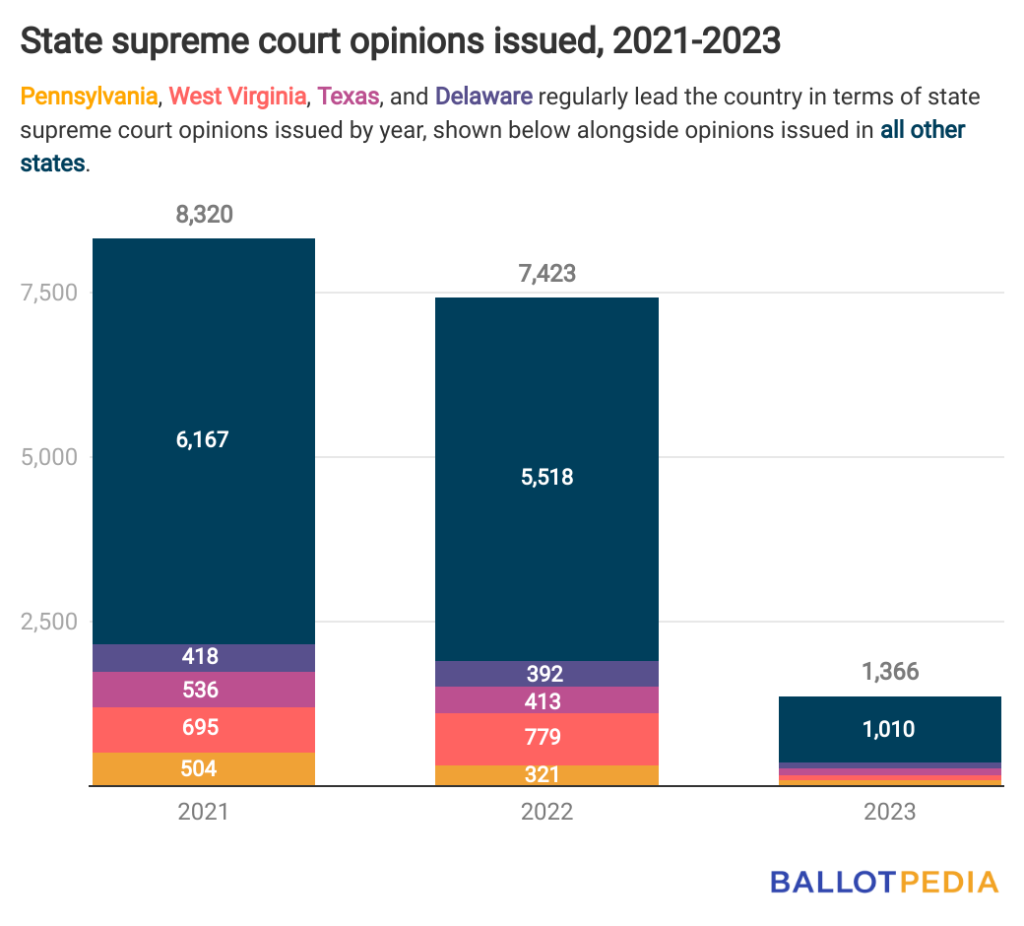State supreme courts issued 142 opinions between March 13-19. The Hawaii Supreme Court led the field with 25 opinions issued, followed by Delaware with 10 and Mississippi, North Dakota, and Ohio with eight.
Last week’s 142 opinions account for 10% of the year-to-date total of 1,366. Delaware leads with 91 opinions issued since Jan. 1, followed by Pennsylvania with 90 and Hawaii with 88.
Supreme courts in most states (33) have issued fewer than 25 opinions since the start of the year, and those in Michigan and North Carolina have yet to issue any opinions so far.

Some of the state supreme court opinions issued this year include those in:
- Texas, where the court denied a prospective San Antonio voter's petition for a writ of mandamus. The voter wanted the court to do the following before voters could vote on a proposed charter amendment: move the proposition vote from the May to the November election; compel the San Antonio city clerk and council to separate the proposed amendment into single-subject parts; and order alterations to the ballot language. The court argued that it is committed to avoiding undue interference with elections and that voters can seek remedies to election irregularities after the election.
- New York, where the court affirmed a lower court's ruling that the victim's prior violent acts could not be submitted to the jury as evidence of initial aggression.
- New Jersey, where the court found that the Township of West Orange improperly designated its public library as an area in need of redevelopment under the Local Redevelopment and Housing Law (LRHL), N.J.S.A. 40A:12A-1 to-49.
Supreme courts in Delaware, Pennsylvania, West Virginia, and Texas regularly end the year as some of the country's most active courts. Collectively, they accounted for 26% of all opinions issued in 2021 and 2022, and, to date, 26% in 2023.

Every state and the District of Columbia have at least one supreme court, known as a court of last resort. Oklahoma and Texas have two courts of last resort, one for civil cases and one for criminal proceedings. Supreme courts do not hear trials of cases. Instead, they hear appeals of decisions made in lower courts. The number of justices on each state supreme court ranges between five and nine.
In 2020, we conducted a study identifying the partisan balance on every state supreme court. You can find that research here. We also identified which justices ruled together most often in our Determiners and Dissenters report found here.



